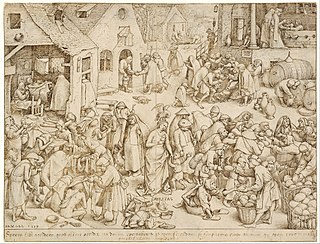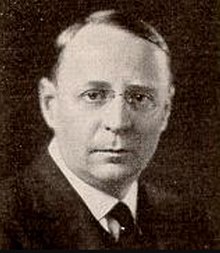
Pentecostalism or Classical Pentecostalism is a renewal movement within Protestant Christianity that places special emphasis on a direct personal experience of God through baptism with the Holy Spirit. The term Pentecostal is derived from Pentecost, the Greek name for the Jewish Feast of Weeks. For Christians, this event commemorates the descent of the Holy Spirit upon the followers of Jesus Christ, as described in the second chapter of the Acts of the Apostles.

Moksha, also called vimoksha, vimukti and mukti, is a term in Hinduism, Buddhism, Jainism and Sikhism which refers to various forms of emancipation, enlightenment, liberation, and release. In its soteriological and eschatological senses, it refers to freedom from saṃsāra, the cycle of death and rebirth. In its epistemological and psychological senses, moksha refers to freedom from ignorance: self-realization, self-actualization and self-knowledge.

A chaplain is, traditionally, a cleric, or a lay representative of a religious tradition, attached to a secular institution such as a hospital, prison, military unit, school, labor union, business, police department, fire department, university, or private chapel.
An anti-pattern is a common response to a recurring problem that is usually ineffective and risks being highly counterproductive. The term, coined in 1995 by Andrew Koenig, was inspired by a book, Design Patterns, which highlights a number of design patterns in software development that its authors considered to be highly reliable and effective.

The ruffed grouse is a medium-sized grouse occurring in forests from the Appalachian Mountains across Canada to Alaska. It is non-migratory. It is the only species in the genus Bonasa.

Alexander Fraser Tytler, Lord Woodhouselee FRSE was a Scottish advocate, judge, writer and historian who served as Professor of Universal History, and Greek and Roman Antiquities at the University of Edinburgh.

Huston Cummings Smith was a leading scholar of religious studies in the United States. He was widely regarded as one of the world's most influential figures in religious studies. He had authored at least thirteen books on world's religions and philosophy, and his book The World's Religions sold over three million copies as of 2017 and remains a popular introduction to comparative religion.
Spiritual ecology is an emerging field in religion, conservation, and academia recognizing that there is a spiritual facet to all issues related to conservation, environmentalism, and earth stewardship. Proponents of Spiritual Ecology assert a need for contemporary conservation work to include spiritual elements and for contemporary religion and spirituality to include awareness of and engagement in ecological issues.

Opportunism is the conscious policy and practice of taking advantage of circumstances – with little regard for principles or with what the consequences are for others. Opportunist actions are expedient actions guided primarily by self-interested motives. The term can be applied to individual humans and living organisms, groups, organizations, styles, behaviours, and trends.

Works of mercy are practices which Christians perform.
The Brahma Kumaris World Spiritual University is a spiritual movement that originated in Hyderabad, Sindh, during the 1930s. The Brahma Kumaris movement was founded by Lekhraj Kripalani. The organisation is affiliated with the United Nations and is known for the prominent role that women play in the movement.
Armstrong World Industries, Inc. is a Pennsylvania corporation incorporated in 1891. It is an international designer and manufacturer of walls and ceilings. Based in Lancaster, Pennsylvania, AWI has a global manufacturing network of 26 facilities, including nine plants dedicated to its WAVE joint venture. In 2011, Armstrong's net sales were $2.86 billion, with operating income of $239.2 million.
Free will in theology is an important part of the debate on free will in general. Religions vary greatly in their response to the standard argument against free will and thus might appeal to any number of responses to the paradox of free will, the claim that omniscience and free will are incompatible.

In the United States, freedom of religion is a constitutionally protected right provided in the religion clauses of the First Amendment. Freedom of religion is also closely associated with separation of church and state, a concept advocated by Colonial founders such as Dr. John Clarke, Roger Williams, William Penn and later founding fathers such as James Madison and Thomas Jefferson.

Jain philosophy explains that seven tattvas constitute reality. These are:—
- jīva- the soul which is characterized by consciousness
- ajīva- the non-soul
- āsrava (influx)- inflow of auspicious and evil karmic matter into the soul.
- bandha (bondage)- mutual intermingling of the soul and karmas.
- samvara (stoppage)- obstruction of the inflow of karmic matter into the soul.
- nirjara - separation or falling-off of part of karmic matter from the soul.
- mokṣha (liberation)- complete annihilation of all karmic matter.
The karmic process in Jainism is based on seven truths or fundamental principles (tattva) of Jainism which explain the human predicament. Out of those, four—influx (āsrava), bondage (bandha), stoppage (saṃvara) and release (nirjarā)—pertain to the karmic process. Karma gets bound to the soul on account of two processes:
The InnerChange Freedom Initiative (IFI) was an American Christian prison program operated by Prison Fellowship International (PFI), a 501(c)(3) nonprofit established by Chuck Colson. It has since been replaced with the Prison Fellowship Academy.
Neil T Anderson is an evangelical best-selling author on spiritual freedom including 'Victory Over the Darkness','The Bondage Breaker', 'The Steps to Freedom in Christ' and 'Daily in Christ'. He is founder and president emeritus of Freedom in Christ Ministries. He was formerly chairman of the Practical Theology Department at Talbot School of Theology.
The All India Catholic Union (AICU) represents almost 16 million Catholics in India: followers of the Latin Rite, the Syro Malabar Catholics and the Syro Malankara Catholics. It has 120 diocese and district units. The AICU was established in 1930.














